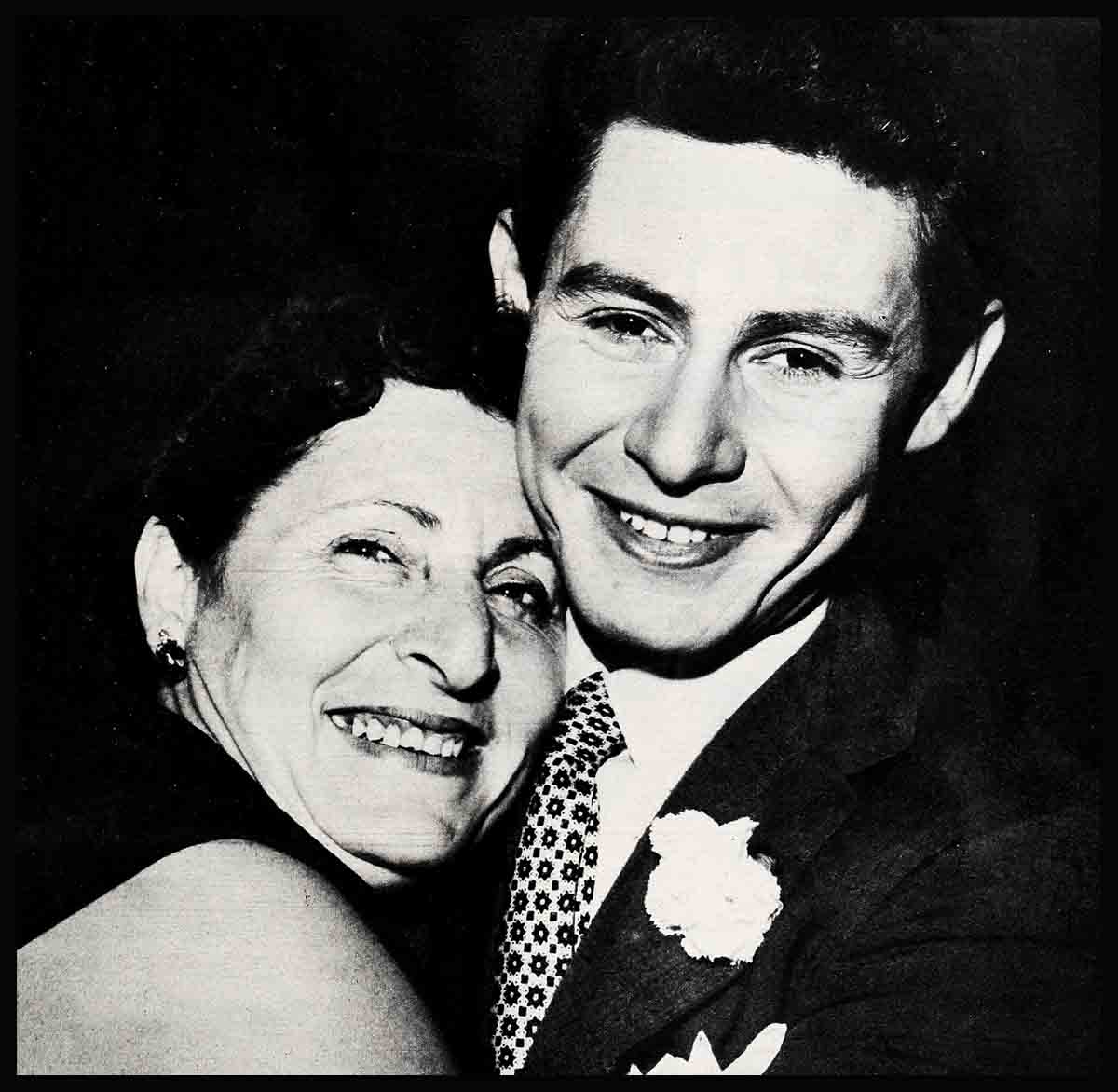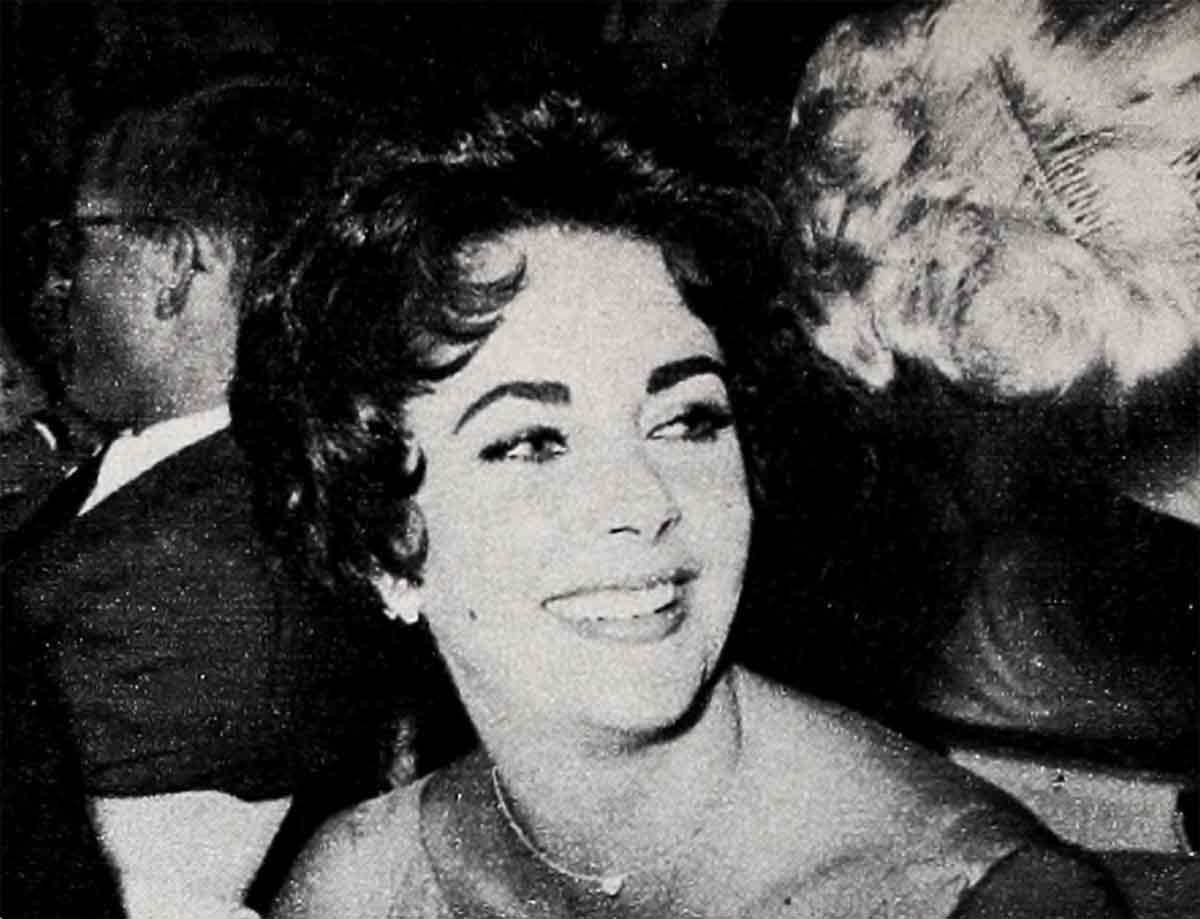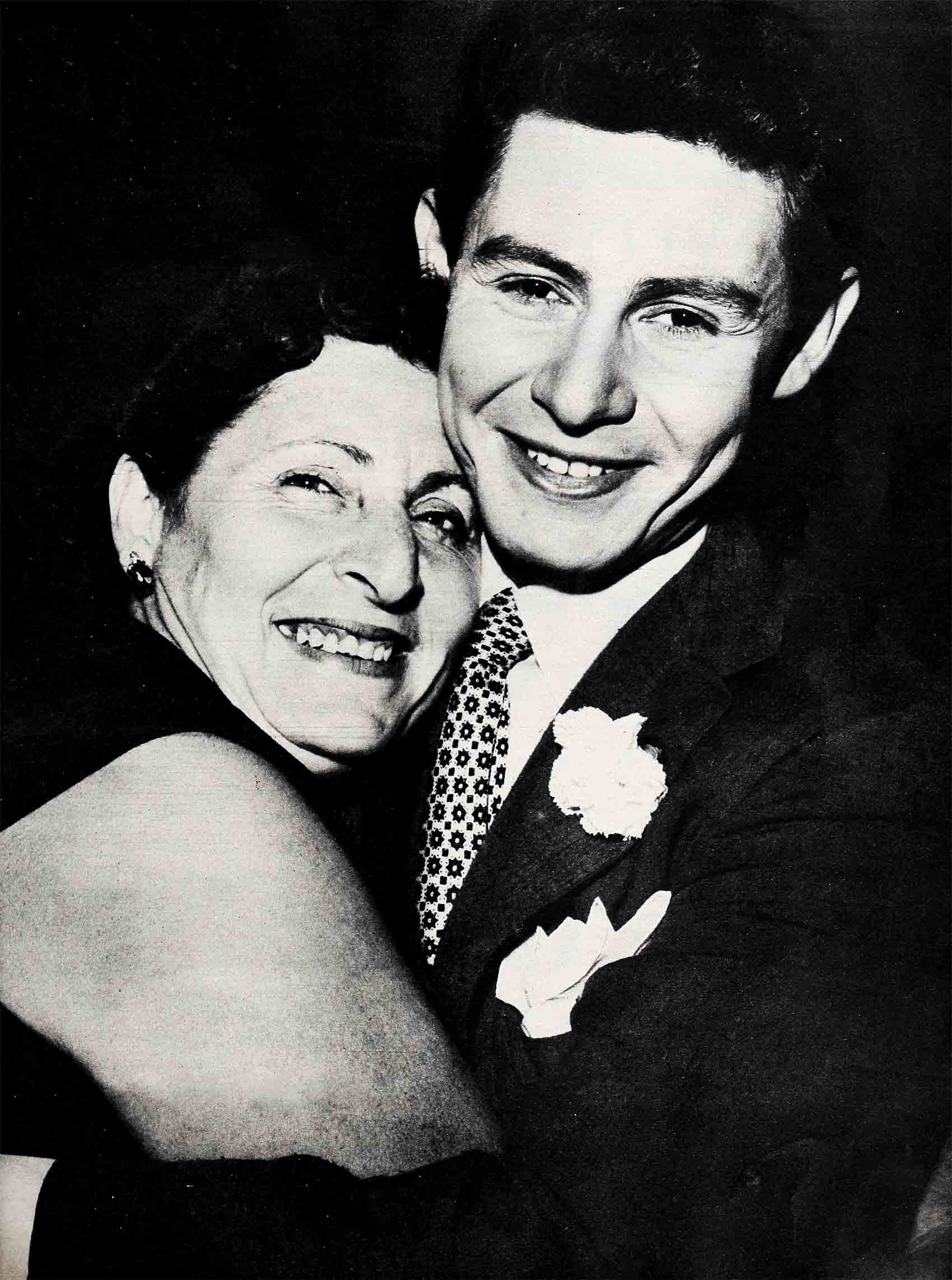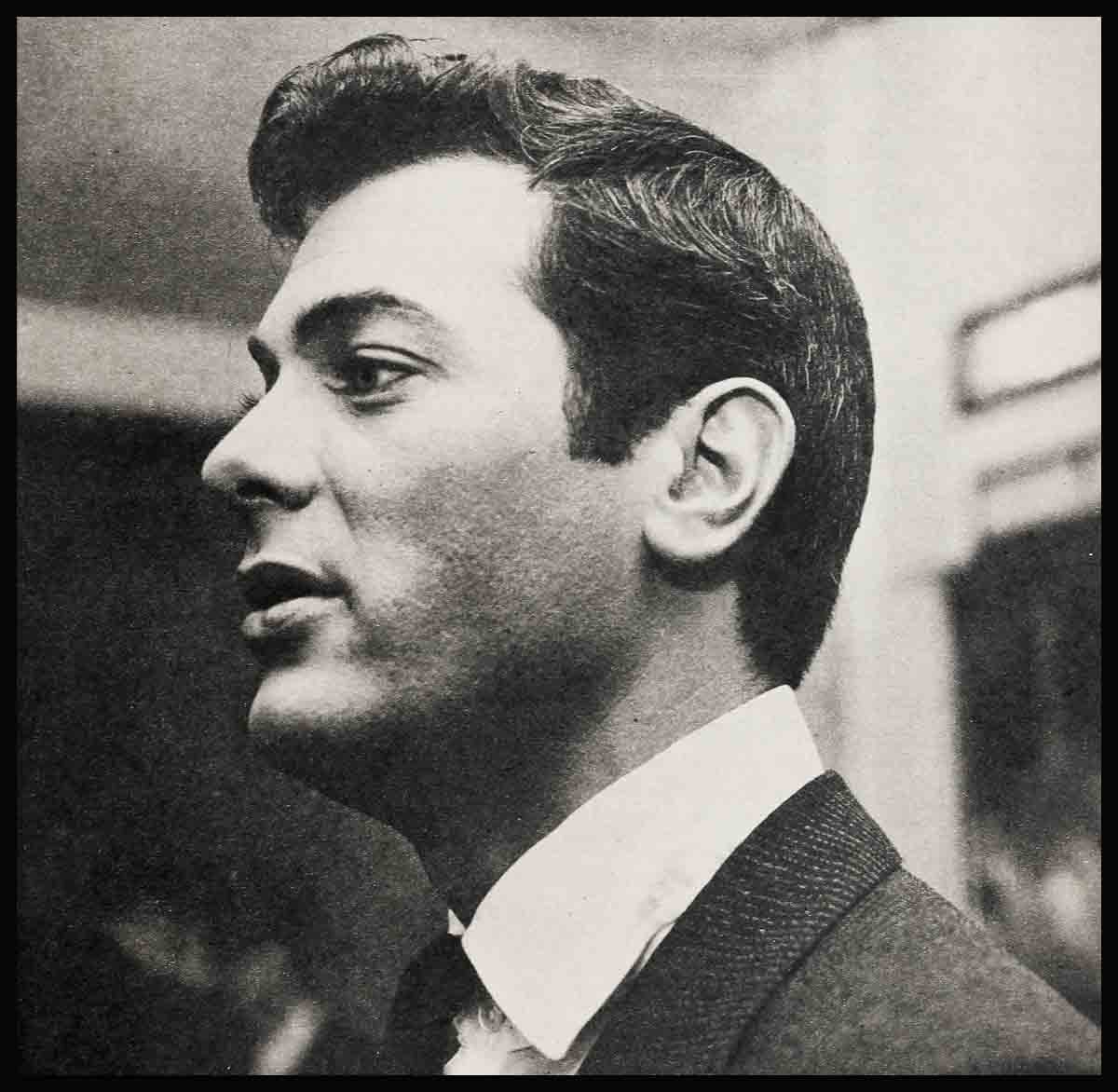
“Don’t Blame Liz”
I’ve never been prouder of my son Eddie than I am today, and though today Eddie’s future is marked by an obstacle, I have faith that he will surmount it.
“Walked out on his wife and children,” are the words pronounced against him. Ugly words. Hurtful words.
Do I apologize for what he’s done, or even for his divorce? No. Divorce is failure. Someone once said that marriage is a house that has to be rebuilt every day by both partners. One alone can’t rebuild. If the house falls and crumbles to ruins, both partners are responsible.
Any honest person who’s had to settle for divorce feels the sadness of his or her share in the failure. I myself am divorced from Joseph Fisher, the father of my four daughters and three sons. And only in my second marriage to Max Stupp have I found the meaning of happiness.
Last fall, the day Eddie moved out, away from Debbie and their two little ones, Carrie and Todd, he telephoned me long distance from the coast. He’s always been faster with a phone than a pen. But there’s been regular, dependable communication whether he’s been in California. New York, London, Korea or Washington. A long-distance call means something to him. It’s one of the wonderful things his success made possible.
“Mom,” he said desperately, “all I can say now is that I tried. Believe me, I tried.”
He talked to me about the children—dark-eyed Carrie and little Todd, who’s Mike Todd’s namesake. “Debbie’s and my two responsibilities,” he said. Responsibilities too great to be forgotten for an instant, no matter how terrible the confusion.
“Debbie loves our kids. And I love them. But what are we to do?” Eddie didn’t say it in so many words but across the distance of miles I knew the anguish in his face, the expression in his eyes.
I’ve never forgotten the expression in his voice the night he called me to say, “Debbie’s just presented me with a baby daughter!” He almost sang it. And he’s never sung a more tender song.
He’s proud of his children. He’s never wanted anything more than he wants the best for their welfare and happiness. Eddie ie a laughing, affectionate, responsible father.
During the conversation on long-distance, he mentioned Elizabeth Taylor only briefly. But after he’d said, “Good night, Mom,” and hung up, I thought, He was trying to tell me that this split-up with Debbie would have happened if Elizabeth had never been born.
I believe Elizabeth had nothing to do with the separation. Circumstances had dragged her unkindly on stage after the finale.
These are my thoughts. For a long time I’d been worried about Eddie and Debbie but asked no questions.
Eddie has never lied. My seven children got into as much mischief as any other children but they stood up, told the truth and took their medicine.

That night last fall, when all the headlines screamed of “another broken marriage” in Hollywood, my memories whirred and mixed together . . . there was the first time I’d seen Debbie, when she and Eddie were engaged. I can see her now, sitting on the arm of the big chair in the living room of our house on Roosevelt Boulevard. It was the first time I’d been able to welcome her into my home. And I was proud that every room was clean and shining. Eddie looked toward the dining room and his eyes settled on the silver tea set. He told her, “I gave that to Mom.” He was so proud.
The moment was warm—everybody looking at the tea set and smiling. Then I heard a girl’s voice say, “It’s a beautiful tea set, Eddie. You’re sweet to your mother and to everyone.” But she added, “I hope he’ll do as well by me.”
He will, I thought. My son loved Debbie. He was crazy about her.
I remember their wedding at Grossinger’s in September, 1955. On that day I suppose I felt my maternal share of happiness, sadness, and a bit of fear that with such a pretty wife around, Mom might be forgotten now and then.
After the ceremony I put my arms around Debbie and hugged her. She was Eddie’s wife, my daughter, the right girl, the one Eddie loved and wanted. I told her what a radiant bride she was, and how proud I was. I said, “Darling, I want you to be happy with Eddie. You love each other and I love you both. I’ll never interfere or bother you—I’ve never done it to the others, not to anyone—but if you ever need help or encouragement or a friend, you come and tell me.”
She was young, a bride, and so sweet and happy. But together they were also grown up, intelligent people who knew that the definition of marriage is serious and long-term.
For a long while I was hopeful for them. That first time when Debbie had come to Philadelphia, I reasoned that it had been hard on her to meet her future in-laws all at once. “She really isn’t cold,” I defended. “You’d be stiff and stand-offish too if everywhere you turned, people were endlessly applauding your future husband and talking about old times before you knew him.”
Eddie phoned Philadelphia from California every week. “Oh, Debbie’s fine,” he’d answer. I always asked. “She’s right here. But tell me, how are you? How’s Max? How are Nettie, Bunny, Janet, Miriam?” He’d ask about each one.
I wished and wished for Debbie to take over the phone for just a few words. Just a “Hello, Mom! Your grandchildren are in bed but they send you a hug.”
To hold it against her would be a wrong on my part. Some people are just that way—as distant as the 2000 miles between those phones.
I have been asked, “Did you see the break coming? Did you know they were having trouble?”
Yes. But until now I’ve kept still. It’s been enough to be disturbed and worried inside about the loneliness I sensed between them.
Every time Eddie would come to New York he’d act like everything was fine. He’d call. He’d say, “Mom, come on up here. Bring Sarah.” Sarah’s a friend of mine who’s known Eddie since he was a baby. Sarah’s husband and Max, Eddie’s brother, would go along with us. Eddie would arrange hotel accommodation, present us with theater tickets, and do everything to make us enjoy ourselves every minute. He took me to Carnegie Hall to hear Van Cliburn.
About a year ago, when I went to New York to see Eddie, Debbie was with him and I was anxious to see her. During my visit they strained to act happy. Debbie still looked like a little girl and I wanted to put my arms around her and talk. But first she had to want my interest and me.

“Give a little, take a little and everything will work out fine,” I told her. Tears sprang to her eyes and for an instant I hoped for understanding.
“Do I blame Elizabeth Taylor?” I am asked.
No. How can I? I don’t even know her. But I do I know that my son believes she is as beautiful inside as outside. He believes in her understanding, her warmth, and these qualities mean a great deal to him.
I believe in my son, his honor, his generous spirit, his decisions. I believe he honestly couldn’t make a go of it with Debbie. Liz had nothing to do with this.
It doesn’t happen only in Hollywood. It happens in the house next door, on the next street, in the next town. It’s life. I’m not one to ever try to pass judgment on life.
Yet I believe that in the years that I I have lived I have learned one truth and that is: that no man walks away from a truly happy life with his partner in marriage. No matter how beautiful and magnetic the ‘other woman’ in the case, he won’t be tempted for long. Not if he’s secure at home in his wife’s understanding, her laughter, warmth, and love. I am talking about decent men who are sensitive, who love loyally. But it is so hard to really reach into the hearts of a couple, even if one partner is your own child.
New Year’s eve Eddie telephoned from New York to wish us a good 1959. Elizabeth was with him. She asked to speak to me. She said, “Hello . . . How are you?” She was friendly. She wanted to know me.
Another time recently Eddie called from California. Elizabeth came on the phone again. “Hello . . . How are you?” she said. “When are you coming out? You know we’re counting on seeing you in Las Vegas in March? Eddie wants you in Vegas then, and so do I. Don’t disappoint us.”
“I’ll be there, dear. Thanks.” After Id hung up I thought she sounded not at all like gossip would have you believe but rather like any warm-hearted girl. She sounded kind, generous and considerate. And I appreciate and cherish the offer of friendship.
The last time I spoke to Eddie—a few evenings ago—he sounded more like his old self—the boy I’ve known thirty years. Yet there’s a difference. He’s older, wiser, mellowed, a richer mixture of himself. He’s taken his wounds standing up and he hasn’t attempted to whitewash himself by blaming anyone but himself.
That’s why I’ve never been prouder of my son Eddie than I am today.
—AS TOLD TO MARTA ROBINET
It is a quote. PHOTOPLAY MAGAZINE MAY 1959




zoritoler imol
24 Nisan 2023Utterly indited articles, Really enjoyed reading through.